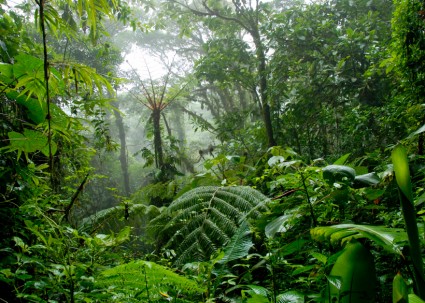This post was co-authored by Lincoln Chafee, former Republican senator from Rhode Island. It was cross-posted from Roll Call.
 It is imperative that the United States find effective and economically viable solutions to the climate crisis. Our elected officials and business leaders ask how we can afford the global transition to a low-carbon economy. Around the globe, developing nations ask how they can afford to reduce their emissions without sacrificing their hopes for a better life. There is no single answer, but there is one unexpected solution that offers hope on both fronts.
It is imperative that the United States find effective and economically viable solutions to the climate crisis. Our elected officials and business leaders ask how we can afford the global transition to a low-carbon economy. Around the globe, developing nations ask how they can afford to reduce their emissions without sacrificing their hopes for a better life. There is no single answer, but there is one unexpected solution that offers hope on both fronts.
To date, the climate debate has focused on reducing fossil fuel emissions and ramping up crucial clean energy alternatives. Far too little attention has been paid to the role tropical deforestation has in warming the planet. It accounts for 17 percent of global emissions — more than all the world’s cars, trucks, planes, trains, and ships combined. This is a serious oversight; if left unaddressed, deforestation will undermine all our efforts to solve the climate crisis.
The good news is that protecting “climate forests” is a major global warming solution that can be implemented immediately and affordably. Many developing nations, including Brazil and Indonesia, which together account for 50 percent of global deforestation, are eager to partner with the United States to protect their climate forests. Indeed, Brazil has established a goal of reducing emissions from the Amazon by 80 percent by 2020 and is already making impressive progress in that direction, including robust monitoring and verification systems. Indonesia is moving in a similar direction. These efforts could be focused, honed, and replicated globally.
Protecting climate forests doesn’t just make environmental sense — it’s an economic imperative. By including tropical forests in U.S. climate policies, the United States can help reduce future carbon prices confronting U.S. companies by 50 percent and help save the United States $50 billion by 2020 compared with the costs of domestic action. Capturing these savings, however, will require substantial new financial and technical resources, including investing $1 billion in public funding before 2012, growing gradually to $5 billion in public funding and $9 billion in private-sector investments annually by 2020.
Saving climate forests would also strengthen U.S. national security by reducing environmental degradation and international instability caused by climate change, which acts as a threat multiplier for conflict. It would contribute to alleviating global poverty by channeling substantial new revenues to the forest-dependent rural poor and conserve invaluable biodiversity and ecosystem services by protecting some of the world’s most important natural places.
This is the thrust of the recommendations issued by the Commission on Climate and Tropical Forests, a bipartisan and multi-sector panel of leaders we co-chair, which recommends that the United States lead a global effort to halve emissions from tropical deforestation by 2020 and achieve zero net emissions from the forest sector by 2030.
In the context of the cap-and-trade approach endorsed by President Obama and being debated in the Senate now, the way to achieve these ambitious goals is to allow U.S. companies to invest in reducing tropical deforestation in order to meet a substantial portion of their domestic emissions reduction obligation. We must leverage these private-sector investments by using public funds to provide technical assistance that enables nations to participate in U.S. carbon markets. This can also support countries that prove unable to attract private capital and engage nations where deforestation threats are growing.
The climate bill passed by the House of Representatives in June would mobilize private-sector investments and would fund new technical assistance programs with a percentage of revenue from domestic emission-allowance auctions. The climate bill released last month by Sens. John Kerry (D-Mass.) and Barbara Boxer (D-Calif.) allows for a similar approach. While these are for the moment among the least-understood parts of pending climate change legislation, they deserve broad bipartisan support.
Coupled with meaningful reductions in domestic emissions, protecting climate forests is one of the most important as well as the most readily available and most cost-effective means of finding a path forward on climate change. For economic, security, humanitarian, and environmental reasons, tropical forest conservation must be a centerpiece initiative of U.S. climate legislation and diplomacy. The alternatives — further delaying climate action, neglecting our responsibility as a global leader, and failing to include robust protections for forests — threaten the vital national interests of the United States. We have the chance to lead, and we must take it.


